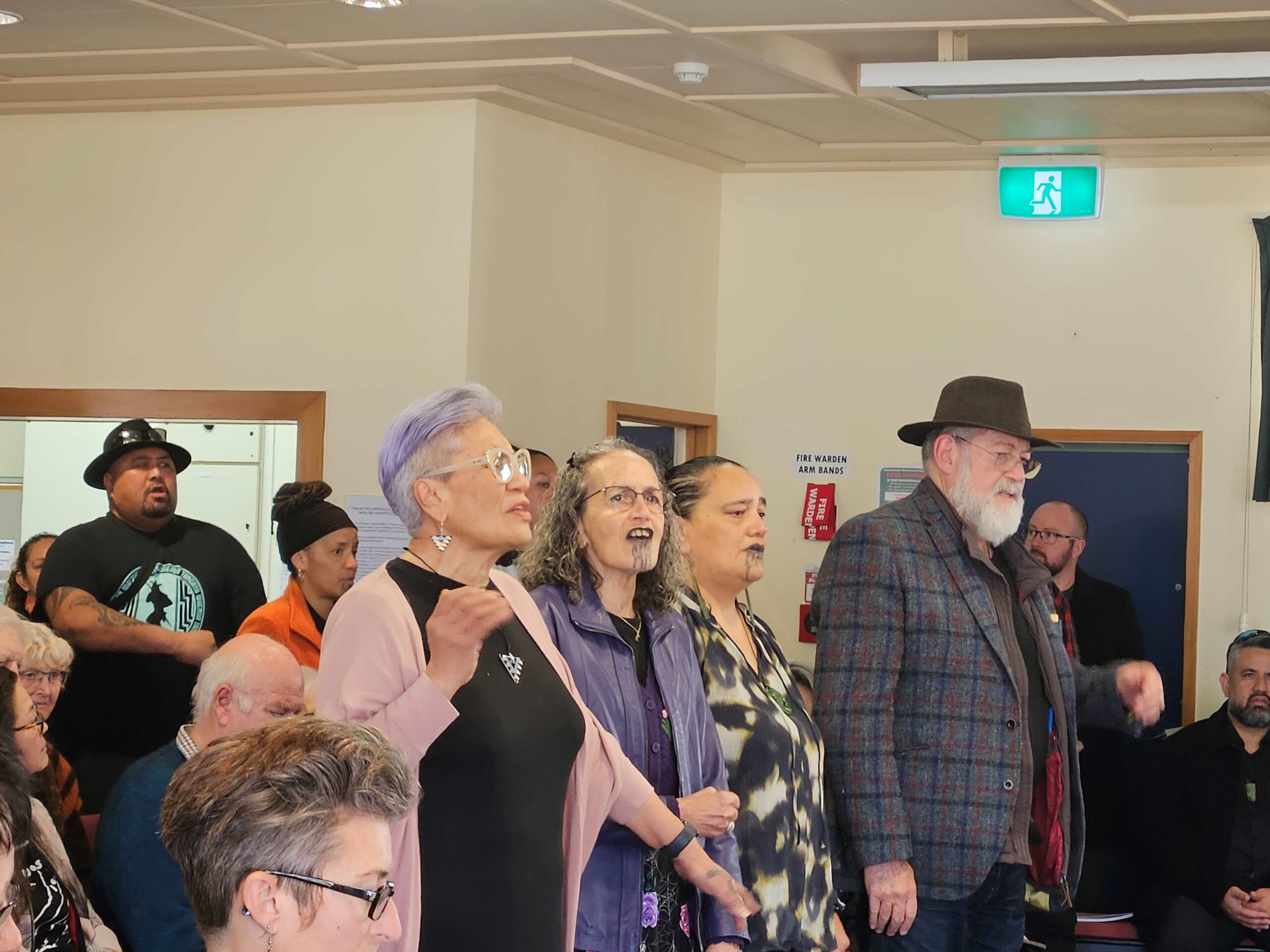Passions ran high on September 3, as Thames Coromandel District Council affirmed its October, 2023 decision to establish a Māori ward.
Over 100 people turned up to the meeting, which was moved to the Thames Civic Centre to accommodate. The public forum gave attendees the chance to have their say directly to councillors, and there was a broad spectrum of viewpoints.
Te Whāriki Manawāhine o Hauraki chief executive Denise Messiter was firmly in support of Māori representation on the council.
“We support whānau of all races, of all genders, to participate in a society they have been excluded from,” she said.
“[This decision] is about you supporting all of us who are sitting in this room. The descendants of colonisers, and the descendants of tangata whenua… If you see us as [an] equal you will hold on to the vote that you made last year.”
The Connecteen Rangatahi youth group also stood in favour.
“We were brought up by parents that were silenced as children… My life is about giving our rangatahi a voice. Please allow them to have a voice in this town. Please let our rangatahi have a future that they are a part of,” group mentor Roanne Mitchell-Te Teira said.
There was also dissension in the room, both regarding the need for Māori wards at all, and whether the council’s original decision had been fair and democratic.
“We’re one people, we’re one race, and we’re one humanity,” Linda said.
“What you are doing is dividing us.”
“At the core is that you, councillors, must rescind the decision that you made… You did it without having a mandate. It’s not about the outcome, it’s not about the courage that has allegedly been shown. It’s about the fact that you did something that you did not have the mandate to do,” Flemming Rasmussen said.
“None of you went to the electorate… You must go back and ask the people.”

In the end, the council did affirm its decision to establish a Māori ward. However, this time the decision was not unanimous. Councillor Terry Walker abstained from voting and Councillor John Grant voted against, both saying they wanted a “democratic referendum” on the topic.
The councillors emphasised there would be no cost to ratepayers to fund a Māori councillor’s salary, confirming the remuneration pool for councillors would not increase and they would effectively be taking a pay cut by adding another member.
The affirmation means that TCDC will now have Māori representation in the 2025 election.
As with Hauraki District Council’s affirmation on August 28, TCDC will also have to include a binding poll in its 2025 local body election. The poll is a direct requirement of the Local Government (Electoral Legislation and Māori Wards and Māori Constituencies) Amendment Act 2024, requiring Councils which established Māori wards without a referendum to seek a vote on their decisions.
The poll will ask voters whether they would like a Māori ward or not, and the outcome will inform the makeup of the 2028 and 2031 elections.
The council also approved its representation review proposal, which recommended the council be made up of one Mayor and 10 councillors representing five wards. Appeals and objections to the proposal will close on October 25.
If the representation proposal is adopted, the 2025 election will see voters on the general roll electing nine councillors across the Coromandel-Colville, Mercury Bay, South-East and Thames general wards. Voters on the Māori roll will elect one councillor to represent the new district-wide Te Tara o Te Ika Māori ward, and all voters will be able to vote for a Mayor.





